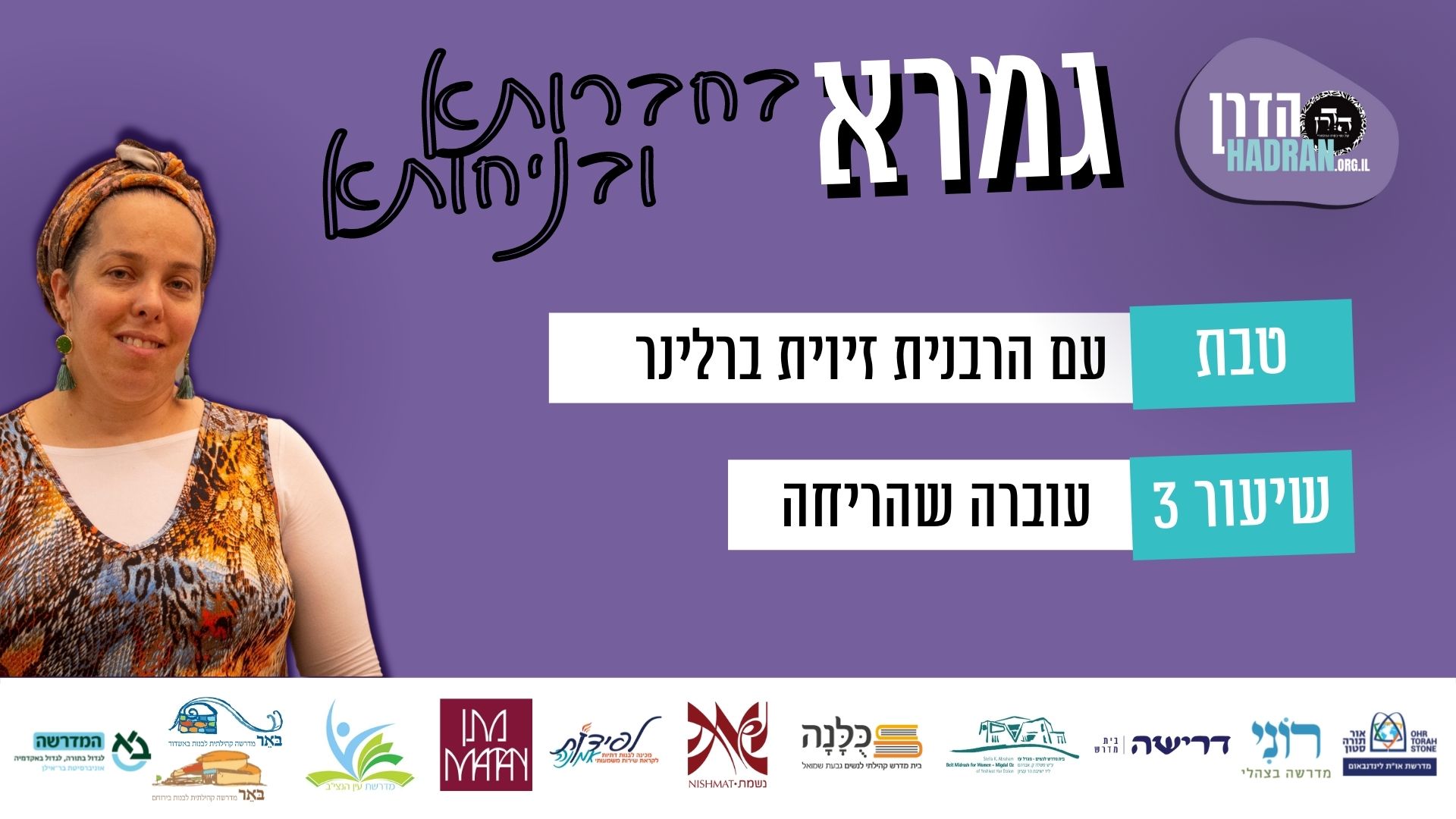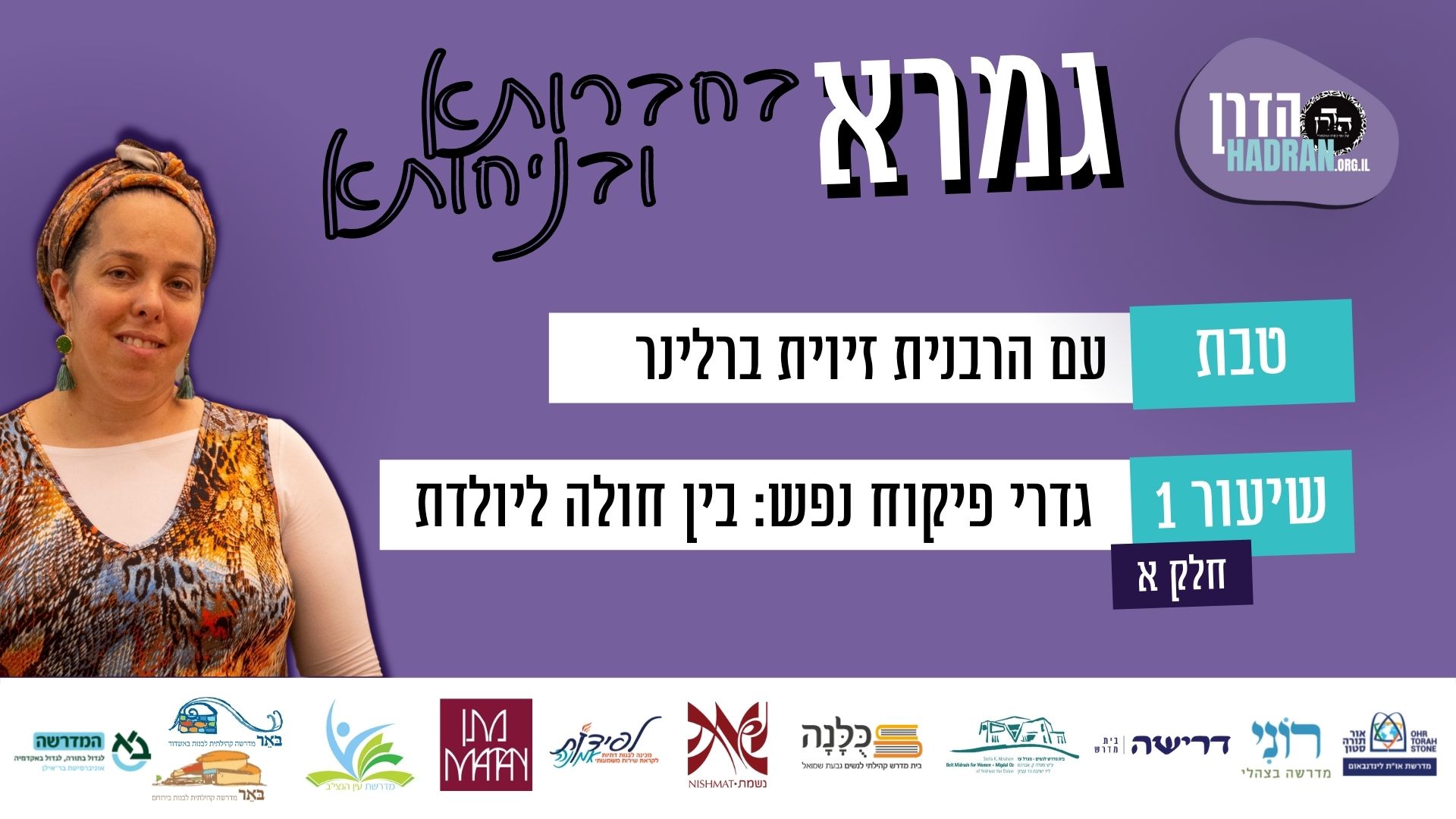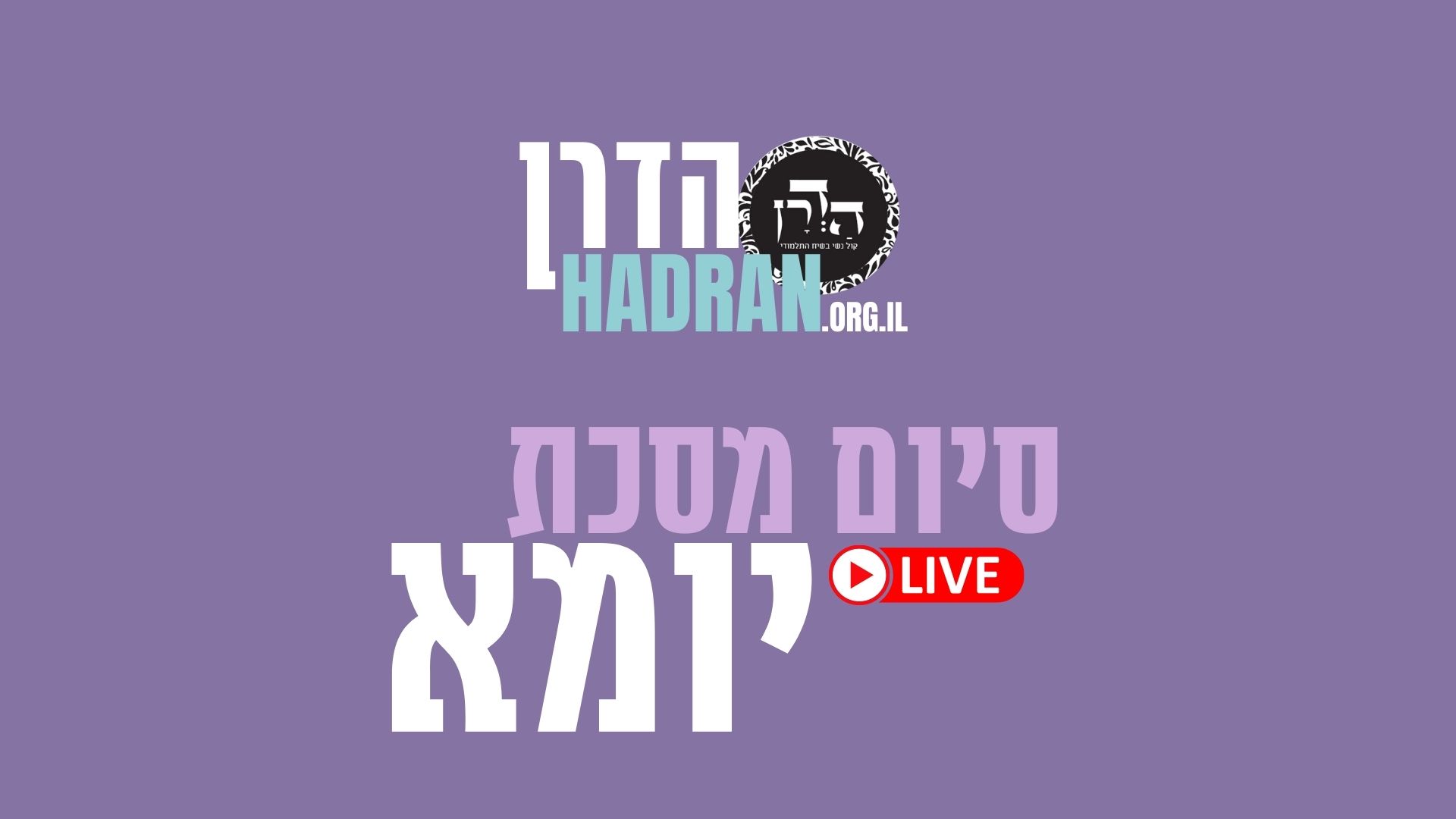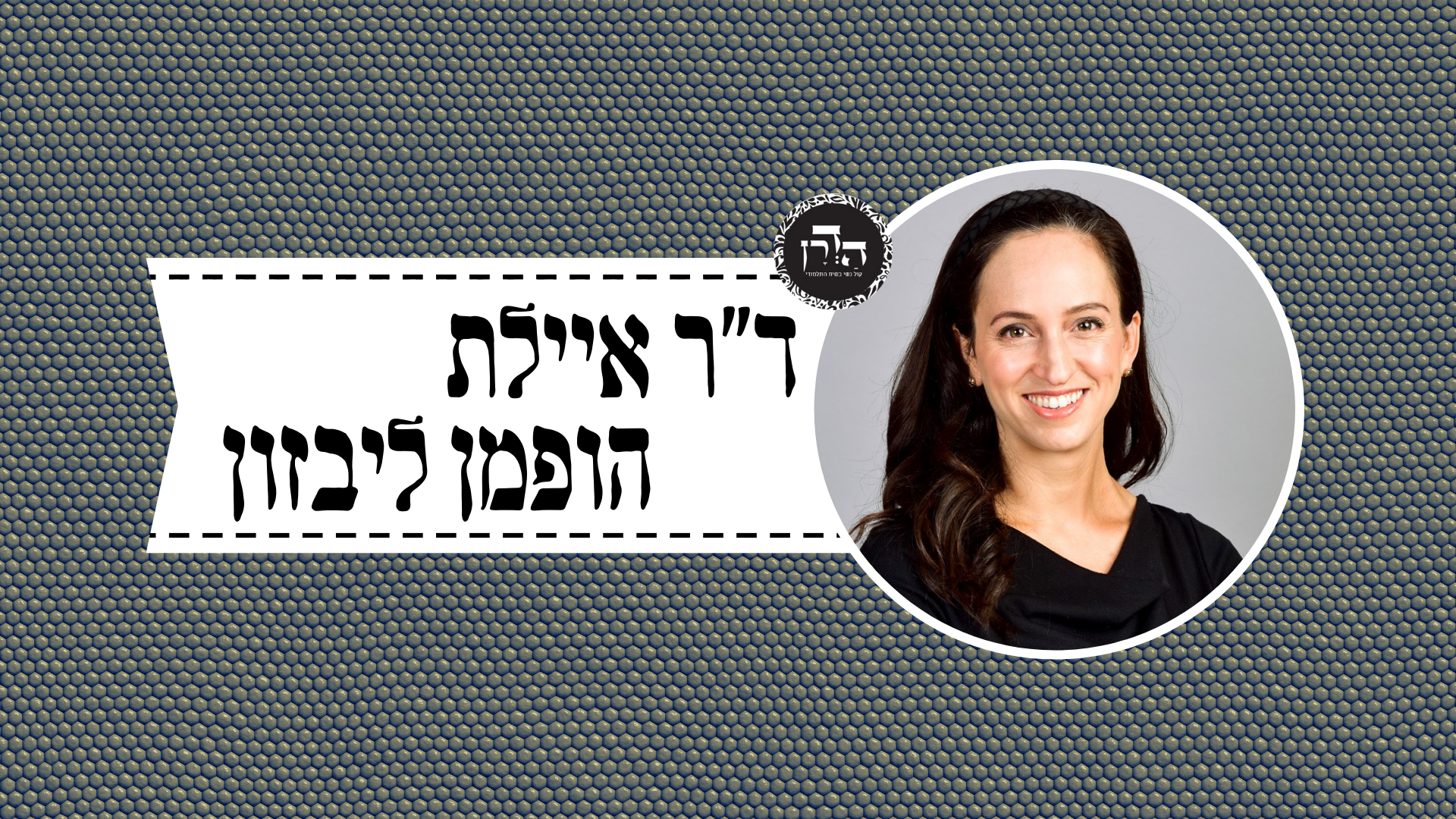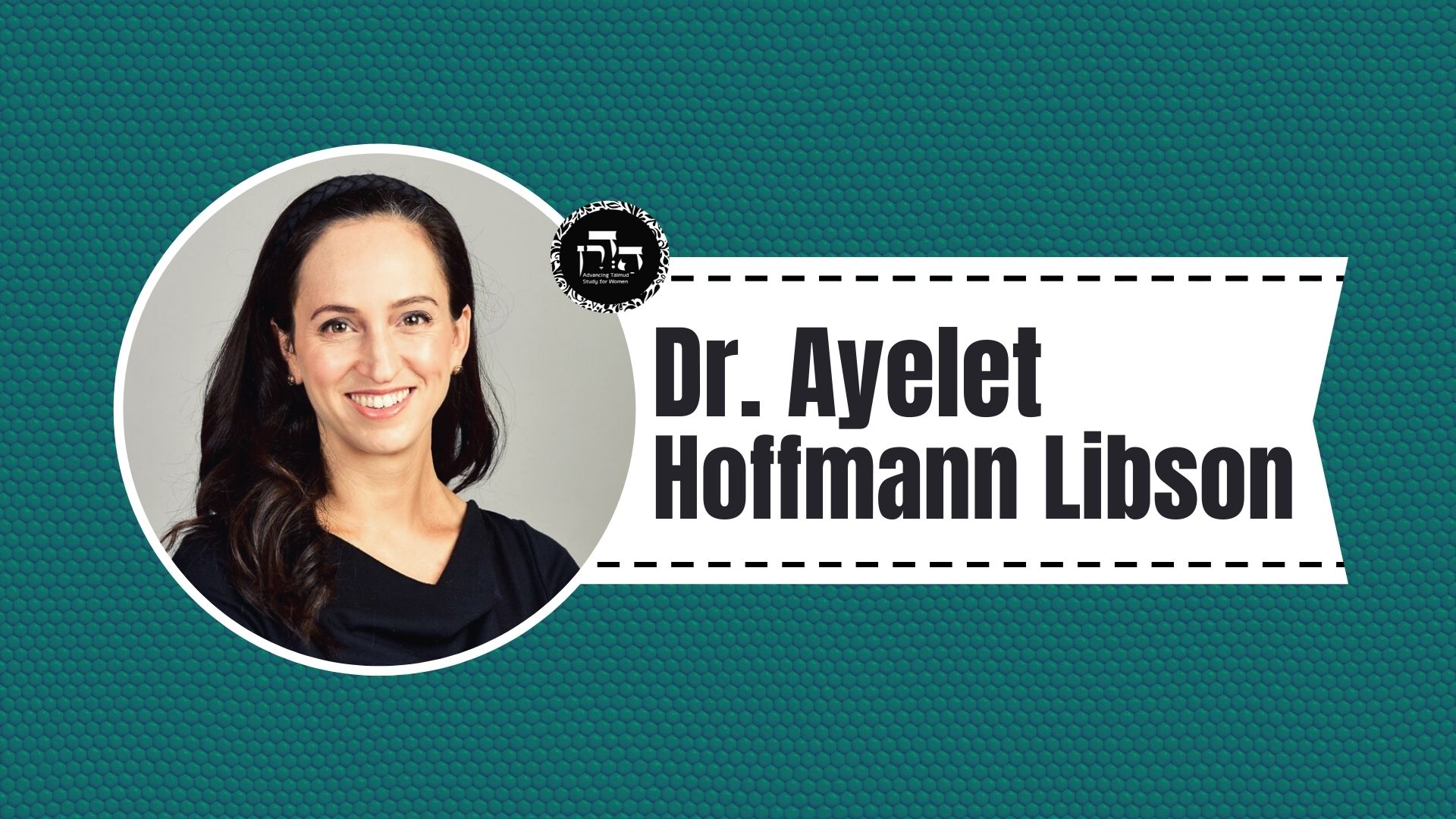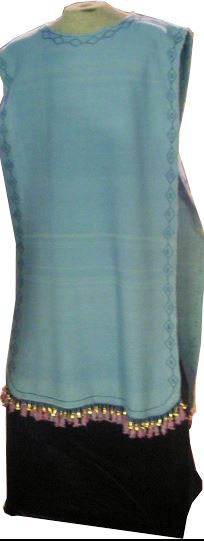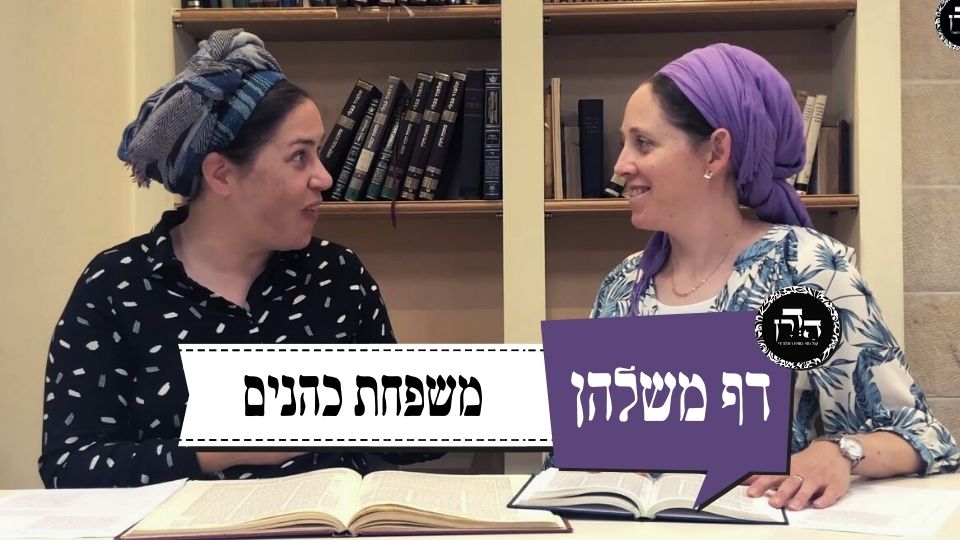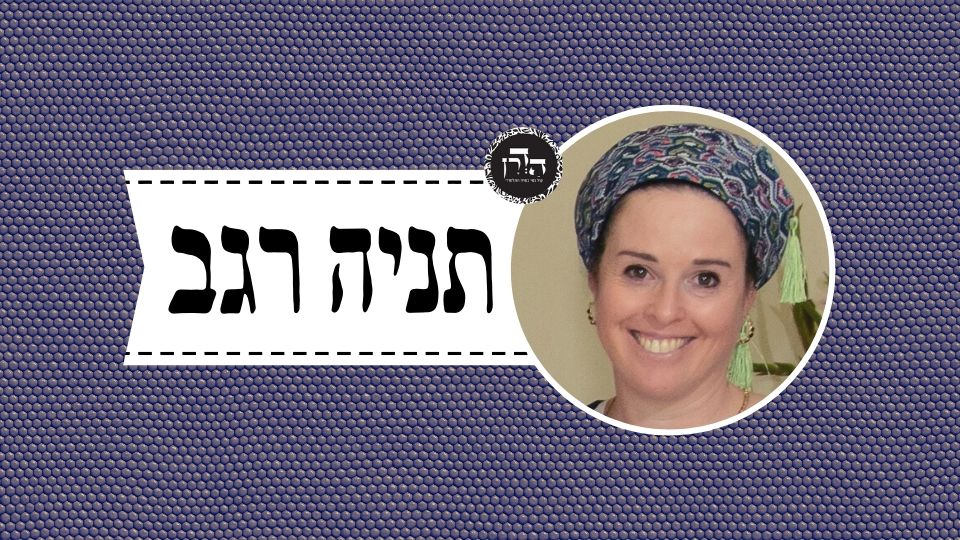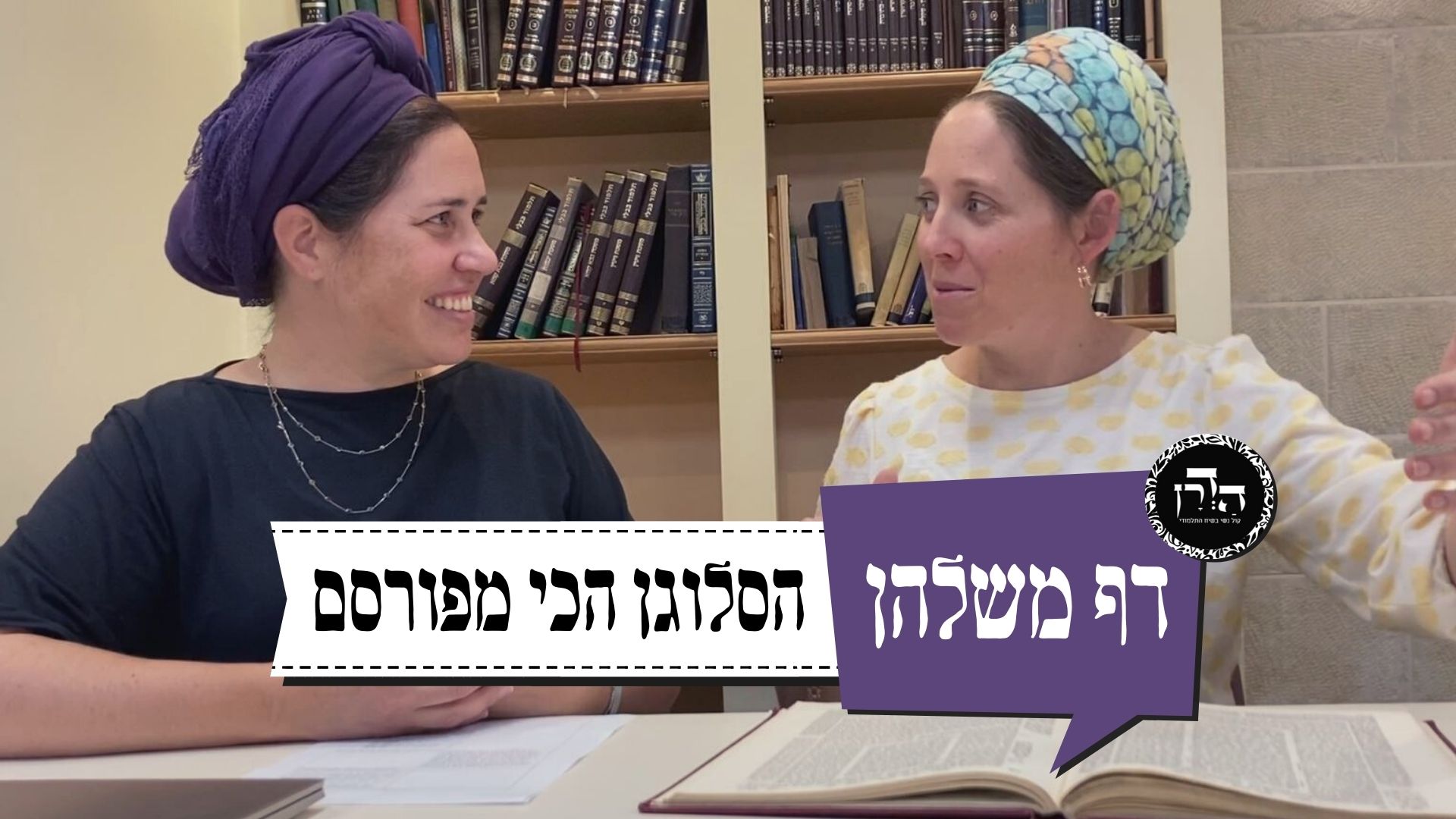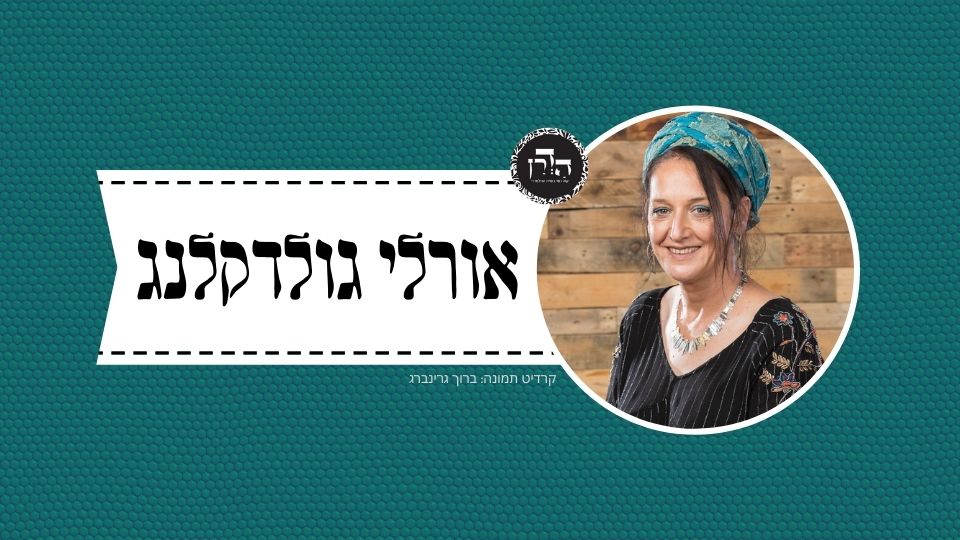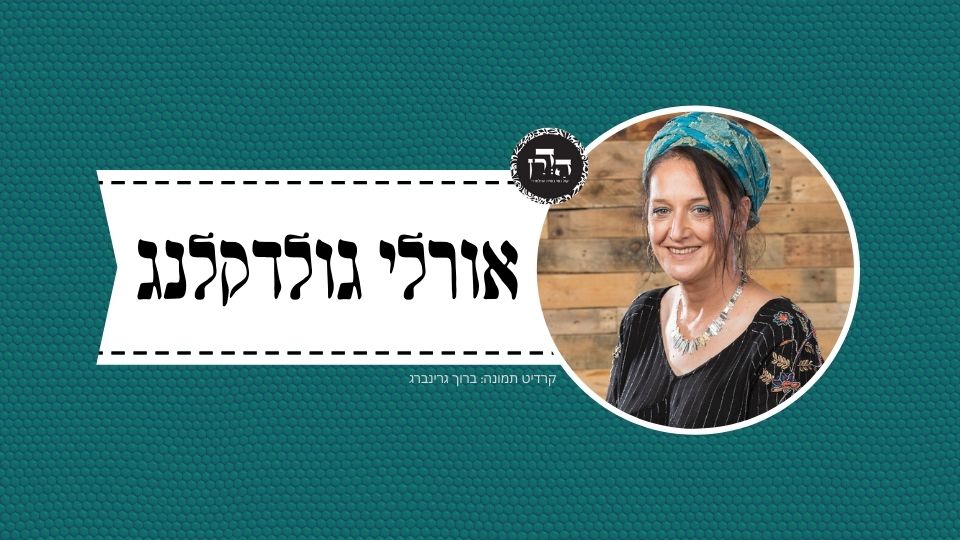ככותבת הגסה וכגרעינתה אסורה לפי המשנה – רב פפא שואל: האם זה כותבת עם הגרעין או בלי? רב אשי שואל שאלה דומה בדין עצם כשעורה. למה כל אחד לא שאל את שאלת השני? יש מחלוקת אמוראים לגבי גודלה של הכותבת הגסה. לרב יהודה, כותבת הגסה היא יותר מכביצה. לרב זביד, כותבת הגסה פחות מכביצה. הגמרא מביאה קושי על דעת רב יהודה ממעשה שהיה בסוכה ויש שני תירוצים לקושי – של רבי ירמיה ושל רבא. היא מחזקת את התירוץ הראשון של רבי ירמיה מביטוי השגור בפי אנשים. הגמרא מקשה על שיטת רבא מהנחה שיוצאת מברייתא בסוכה העוסקת בדברים החייבים באכילה בסוכה. לאחר שמתרצים את הקושייה בשתי דרכים, מביאים חיזוק לתירוץ של רבא ממקור אחר אבל חיזוק זה נדחה. כנ”ל הגמרא מביאה חיזוק לדברי רב זביד ממשנה בעניין שיעורים בחמץ ושאור ודוחה אותו ולאחר מכן מביאה ראיה אחרת העוסקת בשיעור המחייב ברכת המזון – אם כביצה נחשבת דבר המשביע, ברור שזה גם מיישב את הדעת ובכן כותבת הגסה אינו יכול להיות יותר מכביצה.
הלימוד החודש מוקדש לרפואת פיליס הכט, גיטל פעשא בת מאשה רחל על ידי חברותיה הרבות שאוהבות ומעריכות אותה.
רוצה להקדיש שיעור?

כלים
הלימוד החודש מוקדש לרפואת פיליס הכט, גיטל פעשא בת מאשה רחל על ידי חברותיה הרבות שאוהבות ומעריכות אותה.
כלים
העמקה
רוצה להבין מה באמת קורה מתחת לפני השטח של הסוגיה?
שיעורים, פודקאסטים והרחבות של מיטב המורות שלנו יפתחו לך עוד זוויות וכיווני חשיבה.
חדשה בלימוד הגמרא?
זה הדף הראשון שלך? איזו התרגשות עצומה! יש לנו בדיוק את התכנים והכלים שיעזרו לך לעשות את הצעדים הראשונים ללמידה בקצב וברמה שלך, כך תוכלי להרגיש בנוח גם בתוך הסוגיות המורכבות ומאתגרות.
פסיפס הלומדות שלנו
גלי את קהילת הלומדות שלנו, מגוון נשים, רקעים וסיפורים. כולן חלק מתנועה ומסע מרגש ועוצמתי.
יומא עט
כְּכוֹתֶבֶת שֶׁאָמְרוּ, בְּגַרְעִינָתָהּ: אוֹ בְּלֹא גַּרְעִינָתָהּ? בָּעֵי רַב אָשֵׁי: עֶצֶם כִּשְׂעוֹרָה, בִּקְלִיפָּתָהּ אוֹ בְּלֹא קְלִיפָּתָהּ, בְּלַחָה אוֹ בִּיבֵשָׁה? רַב אָשֵׁי לָא מִבַּעְיָא לֵיהּ הָא דְּרַב פָּפָּא, ״גַּסָּה״ אִיתְּמַר — כֹּל כַּמָּה דְּגַסָּה. רַב פָּפָּא לָא מִבַּעְיָא לֵיהּ הָא דְּרַב אָשֵׁי: לַחָה — שִׁבּוֹלֶת מִיקְּרֵי, שֶׁלֹּא בִּקְלִיפָּתָהּ — אוּשְׁלָא מִיקְּרֵי.
The large date-bulk that they said is the measure that determines liability for eating on Yom Kippur, does this refer to the volume of a large date with its pit or without its pit? Rav Ashi asked a similar question: The mishna that states that a bone that is a barley-grain-bulk imparts ritual impurity, does this refer to the volume of a barley grain with its husk or without its husk? And is that referring to a wet kernel or a dry one? The Gemara clarifies: Rav Ashi did not ask the question that Rav Pappa asked, regarding the size of the date-bulk on Yom Kippur because the answer was clear to him. Since it is stated in the mishna: Large, it means as large as possible, which must include the pit. Conversely, Rav Pappa did not ask the question that Rav Ashi asked regarding the size of the barley-grain-bulk because the answer was clear to him. Wet barley is called shibbolet and not barley; without its shell it is no longer called barley but is called ushla. Therefore, the mishna must be referring to dry barley within its shell.
אָמַר (רָבָא) אָמַר רַב יְהוּדָה: כּוֹתֶבֶת הַגַּסָּה שֶׁאָמְרוּ, יְתֵירָה מִכְּבֵיצָה. וְקִים לְהוּ לְרַבָּנַן דִּבְהָכִי מִיַּתְּבָא דַּעְתֵּיהּ, בְּצִיר מֵהֲכִי — לָא מִיַּתְּבָא דַּעְתֵּיהּ. מֵיתִיבִי: מַעֲשֶׂה וְהֵבִיאוּ לְרַבָּן יוֹחָנָן בֶּן זַכַּאי לִטְעוֹם אֶת הַתַּבְשִׁיל, וּלְרַבָּן גַּמְלִיאֵל שְׁתֵּי כוֹתָבוֹת וּדְלִי שֶׁל מַיִם. וְאָמְרוּ: הַעֲלוּם לַסּוּכָּה. וְתָנֵי עֲלַהּ: לָא מִפְּנֵי שֶׁהֲלָכָה כָּךְ, אֶלָּא שֶׁרָצוּ לְהַחֲמִיר עַל עַצְמָן.
Rava said that Rav Yehuda said: The volume of a large date that they said is larger than an egg-bulk. The Sages have an accepted tradition that with this amount of food, the mind of the one who eats is settled, and he is not afflicted. Less than this amount, the mind is not settled. The Gemara raises an objection from what we have learned: An incident happened on the festival of Sukkot. They brought a cooked dish to Rabban Yoḥanan ben Zakkai to taste, and they brought to Rabban Gamliel two dates and a tankard of water. Rabban Yoḥanan ben Zakkai and Rabban Gamliel said to them: Bring them up to the sukka, and we will eat there. And a baraita was taught in that regard: They did not act this way because that is the halakha, that such food must be eaten in the sukka. Rather, they wished to be stringent upon themselves and not eat anything outside of the sukka.
וּכְשֶׁנָּתְנוּ לוֹ לְרַבִּי צָדוֹק אוֹכֶל פָּחוֹת מִכְּבֵיצָה — נְטָלוֹ בְּמַפָּה וַאֲכָלוֹ חוּץ לַסּוּכָּה, וְלֹא בֵּירַךְ אַחֲרָיו.
On the other hand, the Gemara reports: And when they gave Rabbi Tzadok food that was less than an egg-bulk to eat, he held it in a cloth and did not wash his hands. And he ate it outside of the sukka and did not recite Grace after Meals afterward.
הָא כְּבֵיצָה — בָּעֵי סוּכָּה. וְאִי סָלְקָא דַעְתָּךְ כּוֹתֶבֶת הַגַּסָּה שֶׁאָמְרוּ יְתֵירָה מִכְּבֵיצָה, הַשְׁתָּא שְׁתֵּי כוֹתָבוֹת בְּלֹא גַּרְעִינָן לָא הָווּ כְּבֵיצָה, כּוֹתֶבֶת הַגַּסָּה וְגַרְעִינָתָהּ מִי הָוֵי יְתֵירָה מִכְּבֵיצָה?! אֲמַר רַבִּי יִרְמְיָה: אִין, שְׁתֵּי כוֹתָבוֹת בְּלֹא גַּרְעִינָתָן לָא הָווּ כְּבֵיצָה, כּוֹתֶבֶת הַגַּסָּה וְגַרְעִינָתָהּ הָוֵי יְתֵירָה מִכְּבֵיצָה. אֲמַר רַב פָּפָּא, הַיְינוּ דְּאָמְרִי אִינָשֵׁי: תְּרֵי קַבֵּי דְּתַמְרֵי חַד קַבָּא דְּקַשְׁיָיתָא וּסְרִיחַ.
The Gemara clarifies: Food that has the volume of an egg-bulk is required to be eaten in a sukka. If it should enter your mind to say that the volume of the large date that they spoke of is larger than the volume of an egg-bulk, there is a contradiction. Now, comparing the two episodes, it seems that two dates without their pits are not the volume of an egg. If so, can the volume of a large date and its pit be greater than that of an egg-bulk? Rav Yirmeya said: Yes, although two dates without their pits are not equal to an egg-bulk, the volume of a large date and its pit are larger than an egg-bulk, since date pits are very large. Rav Pappa said: This explains the folk saying that people say: In two kav of dates there is one kav and more of pits, meaning that the volume of the pit is larger than that of the fruit itself.
רָבָא אָמַר: הָתָם הַיְינוּ טַעְמָא מִשּׁוּם דְּהָווּ לְהוּ פֵּירֵי, וּפֵירֵי לָא בָּעוּ סוּכָּה. מֵיתִיבִי, אָמַר רַבִּי: כְּשֶׁהָיִינוּ לוֹמְדִים תּוֹרָה אֵצֶל רַבִּי אֶלְעָזָר בֶּן שַׁמּוּעַ הֵבִיאוּ לְפָנֵינוּ תְּאֵנִים וַעֲנָבִים וַאֲכַלְנוּם אֲכִילַת עֲרַאי חוּץ לְסוּכָּה. אֲכִילַת עֲרַאי — אִין, אֲכִילַת קֶבַע — לָא! אֵימָא: אֲכַלְנוּם כַּאֲכִילַת עֲרַאי חוּץ לַסּוּכָּה.
Rava said: This entire line of questioning has no basis: There, in the incident of the sukka, this is the reasoning that the halakha permits eating the dates outside of the sukka, due to the fact that dates are fruit, and fruit need not be eaten in a sukka but may be eaten outside of a sukka. The Gemara raises an objection. Rabbi Yehuda HaNasi said: When we would learn Torah with Rabbi Elazar ben Shamua, they brought before us figs and grapes, and we ate them as a casual meal outside of the sukka. The Gemara analyzes this: This implies that in the case of a casual meal, yes, it may be eaten outside of a sukka; but a fixed meal may not be eaten outside of a sukka. Therefore, a meal consisting of fruit must be eaten in a sukka. The Gemara rejects this: That is the wrong inference. Instead, say we ate them as if they were a casual meal, which may be eaten outside of the sukka, meaning that eating fruit is always considered a snack.
אִי בָּעֵית אֵימָא: אֲכַלְנוּם אֲכִילַת קֶבַע, וְאָכַלְנוּ פַּת אֲכִילַת עֲרַאי בַּהֲדַיְיהוּ חוּץ לַסּוּכָּה.
If you wish, say instead that it can be understood in this way: We ate that fruit as a fixed meal, and we ate bread as a casual meal with the fruit, to temper their sweetness, outside of the sukka.
לֵימָא מְסַיַּיע לֵיהּ: לְפִיכָךְ, אִם הִשְׁלִים בְּמִינֵי תַרְגִּימָא — יָצָא. וְאִי סָלְקָא דַעְתָּךְ פֵּירֵי בָּעוּ סוּכָּה, לִיתְנֵי פֵּירוֹת! מַאי מִינֵי תַרְגִּימָא — פֵּירוֹת. וְאִיבָּעֵית אֵימָא: בְּאַתְרָא דְּלָא שְׁכִיחִי פֵּירֵי.
The Gemara suggests: Let us say that this baraita supports Rava. It teaches: Therefore, if one completed consuming the amount that one is required to eat in the sukka with types of sweets, he has fulfilled his obligation of sitting in the sukka. If it should enter your mind to say that fruit is required to be eaten in a sukka, then it should not say sweets; let it teach fruit. The Gemara rejects this proof: What do the words types of sweets mean? It means fruit. Therefore, this baraita is not a support for Rava’s opinion. And if you wish, say that this baraita is referring to a place where fruits are uncommon, and therefore other sweet foods are eaten, but fruit can similarly complete the requirement. Consequently, no support can be brought from here.
רַב זְבִיד אָמַר: כּוֹתֶבֶת הַגַּסָּה שֶׁאָמְרוּ — חֲסֵרָה מִכְּבֵיצָה. דִּתְנַן, בֵּית שַׁמַּאי אוֹמְרִים: שְׂאוֹר — בְּכַזַּיִת, חָמֵץ — בְּכַכּוֹתֶבֶת.
Until now, the Gemara has assumed that the volume of a large date is more than that of an egg. Rav Zevid disagreed with what was mentioned earlier and said: This is not so. Rather, the volume of a large date that they spoke of is less than an egg-bulk, as we learned in a mishna: Beit Shammai say: With regard to leaven, the sourdough used to make dough rise, ownership of the volume of an olive-bulk violates the prohibitions in the following verses stated regarding Passover: “And no leavened bread shall be seen with you” (Exodus 13:7) and “Seven days shall there be no leaven found in your houses” (Exodus 12:19). However, the amount of leavened bread that must be owned to violate the prohibition is the volume of a large date.
וְהָוֵינַן בָּהּ: מַאי טַעְמָא דְּבֵית שַׁמַּאי? נִכְתּוֹב רַחֲמָנָא ״חָמֵץ״, וְלָא בָּעֵי ״שְׂאוֹר״, וַאֲנָא אָמֵינָא: וּמָה חָמֵץ שֶׁאֵין חִמּוּצוֹ קָשֶׁה — אָסוּר בִּכְזַיִת, שְׂאוֹר שֶׁחִמּוּצוֹ קָשֶׁה — לֹא כָּל שֶׁכֵּן? מִדְּפַלְגִינְהוּ רַחֲמָנָא, לִימְּדָה לְךָ שִׁיעוּרוֹ שֶׁל זֶה לֹא כְּשִׁיעוּרוֹ שֶׁל זֶה. שְׂאוֹר בְּכַזַּיִת, וְחָמֵץ בְּכַכּוֹתֶבֶת.
The Gemara continues. And we discussed it: What is the reason for the opinion of Beit Shammai? If both leaven and leavened bread had the same measure that determines liability, let the Merciful One write only: “Leavened bread,” and He would not need to write: “Leaven.” I would say, based on logic: If leavened bread, whose leavening ability is not as strong, is prohibited at an olive-bulk, all the more so should not leaven, whose leavening ability is strong because it causes dough to rise, be also prohibited at an olive-bulk? Since the Merciful One distinguishes between them and states both “leaven” and “leavened bread,” this taught you that the measure for one is not the same as the measure for the other. The measure that determines liability for leaven is an olive-bulk, like in the case of most prohibitions from the Torah, and the measure that determines liability for leavened bread, whose leavening ability is weaker, is the volume of a large date.
וְאִי סָלְקָא דַּעְתָּךְ כּוֹתֶבֶת הַגַּסָּה שֶׁאָמְרוּ יְתֵירָה מִכְּבֵיצָה, מִכְּדִי בֵּית שַׁמַּאי אַשִּׁיעוּרָא דִּנְפִישׁ מִכְּזַיִת קָא מְהַדְּרִי, לִיתְנֵי כְּבֵיצָה. וְאִי נָמֵי כִּי הֲדָדֵי נִינְהוּ, נִיתְנֵי כְּבֵיצָה! אֶלָּא לָאו, שְׁמַע מִינַּהּ: כּוֹתֶבֶת פְּחוּתָה מִכְּבֵיצָה.
The Gemara clarifies: And if it should enter your mind to say: The volume of the large date that they spoke of is greater than an egg-bulk, since Beit Shammai are searching for the measure one size larger than an olive-bulk, as they proved that leavened bread must have a larger measure than an olive-bulk, and if the measure one size larger than an olive-bulk is an egg-bulk, then let them teach an egg-bulk and not a date. Alternatively, if they are exactly the same volume, and the volume of a large date has the same volume as an egg-bulk, they should have taught an egg-bulk, which is the more commonly used measure. Rather, must one not conclude from here that the volume of a large date is less than an egg-bulk?
מִמַּאי? דִּילְמָא לְעוֹלָם אֵימָא לְךָ כּוֹתֶבֶת הַגַּסָּה שֶׁאָמְרוּ — יְתֵירָה מִכְּבֵיצָה, הָא סְתָמָא — כְּבֵיצָה. וְאִי נָמֵי כִּי הֲדָדֵי נִינְהוּ, וַחֲדָא מִינַּיְיהוּ נְקַט.
The Gemara rejects this: From where is your proof? Perhaps I could actually say to you that the measure of the volume of a large date that they said is larger than an egg-bulk; however, the volume of a date of normal size is the same as an egg-bulk, and Beit Shammai were referring to a normal-sized date. Alternatively, say that the volume of a large date and an egg-bulk are equal, and the mishna chose to use one of them. Either way, there is no proof from here that the volume of a large date is greater than an egg-bulk.
אֶלָּא מֵהָכָא: עַד כַּמָּה מְזַמְּנִין? עַד כְּזַיִת, דִּבְרֵי רַבִּי מֵאִיר. רַבִּי יְהוּדָה אוֹמֵר: עַד כְּבֵיצָה. בְּמַאי קָא מִיפַּלְגִי — רַבִּי מֵאִיר סָבַר: ״וְאָכַלְתָּ״, זוֹ אֲכִילָה, ״וְשָׂבָעְתָּ״, זוֹ שְׁתִיָּה — וַאֲכִילָה בִּכְזַיִת. וְרַבִּי יְהוּדָה סָבַר: ״וְאָכַלְתָּ וְשָׂבָעְתָּ״, אֲכִילָה שֶׁיֵּשׁ בָּהּ שְׂבִיעָה, וְאֵי זֶה — זֶה כְּבֵיצָה.
Rather, it cannot be proven from here. Proof can be found from here: How much must one eat to obligate those with whom he ate in an invitation [zimmun] for Grace After Meals? An olive-bulk of food suffices to obligate those with whom they ate in a zimmun; these are the words of Rabbi Meir. Rabbi Yehuda says: An egg-bulk is the minimum measure to obligate those with whom they ate in a zimmun. The Gemara clarifies: With regard to what do they disagree? Rabbi Meir holds that the verse “And you shall eat and be satisfied and bless the Lord your God” (Deuteronomy 8:10) should be understood as follows: “And you shall eat”; this is referring to eating. “And be satisfied”; this is referring to drinking. The definition of eating throughout the Torah is consuming an olive-bulk. Rabbi Yehuda holds: “And you shall eat and be satisfied” is referring to eating that causes satisfaction, and what is that? The volume of an egg-bulk. Less than that amount of food is not satisfying.
וְאִי סָלְקָא דַעְתָּךְ כּוֹתֶבֶת הַגַּסָּה שֶׁאָמְרוּ יְתֵירָה מִכְּבֵיצָה, הַשְׁתָּא כְּבֵיצָה שַׂבּוֹעֵי מְשַׂבְּעָא, דַּעְתָּא לָא מִיַּתְּבָא?! אֶלָּא לָאו, שְׁמַע מִינַּהּ: כּוֹתֶבֶת הַגַּסָּה שֶׁאָמְרוּ פָּחוֹת מִכְּבֵיצָה. כְּבֵיצָה — מְשַׂבְּעָא, כְּכוֹתֶבֶת — מִיַּתְּבָא דַּעְתֵּיהּ.
And if it should enter your mind to say that the volume of the large date that they spoke of is larger than an egg-bulk, the following question can be asked: Now that we have said that the volume of an egg-bulk satisfies, can we say that it does not settle the mind, and thereby remove the affliction of Yom Kippur? Rather, must one not conclude from this that the volume of a large date that they said is less than the size of an egg-bulk? Eating the larger amount of an egg-bulk satisfies a person, but eating the volume of a large date only settles his mind.
תַּנְיָא, רַבִּי אוֹמֵר:
It was taught in a baraita: Rabbi Yehuda HaNasi says:
